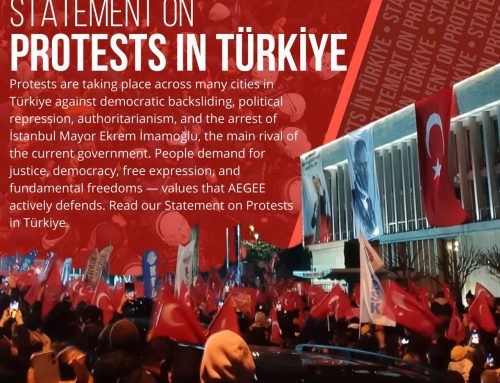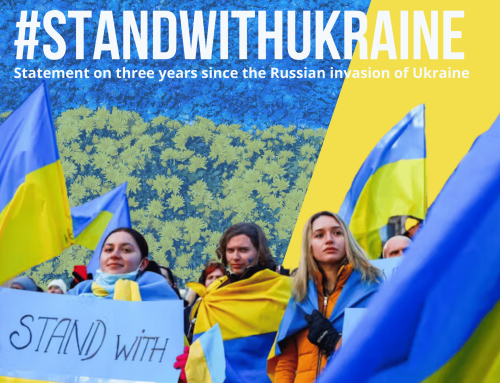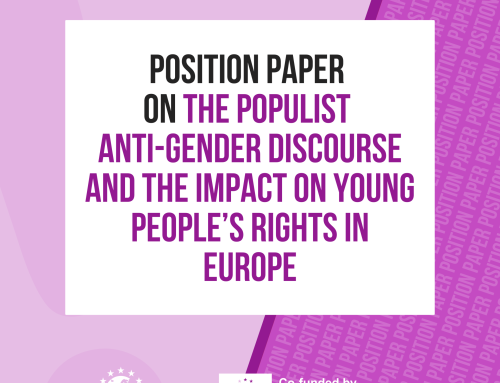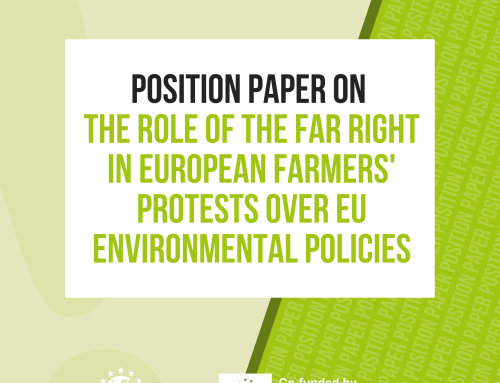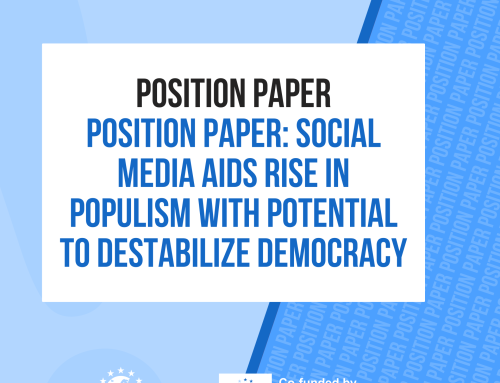On a resolution issued on the 20th of March, the Spanish Electoral Board (administrative organ that veils for the neutrality of the elections) banned the possibility of a direct encouragement of Spanish citizens to vote by any public. Concretely, it forbids the public powers to use images of people voting, urns or slogans urging to participate in the election process.
AEGEE believes that such an interpretation of the law does not follow the democratic values, since one of the pillars of a democratic society is participation in the election of their representatives, and the right to vote should be encouraged with stronger means than the right to abstain. Indeed, this decision is justified by interpreting that “the right to abstain is an option as legitimate as the right to vote”, thus only information about the elections can be provided, however any incentive to participate to the elections is not authorized.
We would like to point out that Spain is the only country in Europe with such legislation. We recommend the Spanish authorities to analyze the context and the situation in other European countries. The diversity of rules that we have in the European elections leads to a situation where we have on the one hand the Belgian law, where it is compulsory for citizens to vote in elections; whereas on the other hand, in Spain, it is not even allowed to promote voting.
AEGEE, which is currently carrying out the Y Vote 2014 campaign to encourage students and first time voters to participate in the upcoming European elections on 22nd-25th of May, knows well how big a challenge can be to bring the trust back to the citizens. We believe that Member States, instead of taking a neutral role, should rather support civil society organisations in fighting political disaffection by encouraging their citizens to cast their vote and to participate in the decision-making process at all levels.
In the end, one should not forget that abstaining to vote is far different from casting a white ballot. If the former can be explained by a wide range of reasons (lack of awareness, disinterest, lack of time…), the latter is interpreted as a sign of nonconformity and lack of proper candidate to represent them. To sum up, abstention highlights a dysfunction on the elector side , whereas a white ballot underlines a lack of suitable options on the candidates side. On top of that, it has been shown already that politicians are not taking abstention seriously enough to change anything in their political stand.
 At this very same moment, the Y Vote campaign is touring in a bus around Spain, visiting Madrid, Valladolid, A Coruña, Oviedo, Santander, Bilbao, Burgos, Zaragoza and Barcelona, with debates with MEP candidates, street actions and a special focus on youth eployment and the solutions to the problems of European youth. The bus tour will finish on May 20th, 5 days before the elections take place in Spain.
At this very same moment, the Y Vote campaign is touring in a bus around Spain, visiting Madrid, Valladolid, A Coruña, Oviedo, Santander, Bilbao, Burgos, Zaragoza and Barcelona, with debates with MEP candidates, street actions and a special focus on youth eployment and the solutions to the problems of European youth. The bus tour will finish on May 20th, 5 days before the elections take place in Spain.
Written by Pablo Hernández (AEGEE-Alicante), Policy Officer of AEGEE-Europe for Youth Participation



